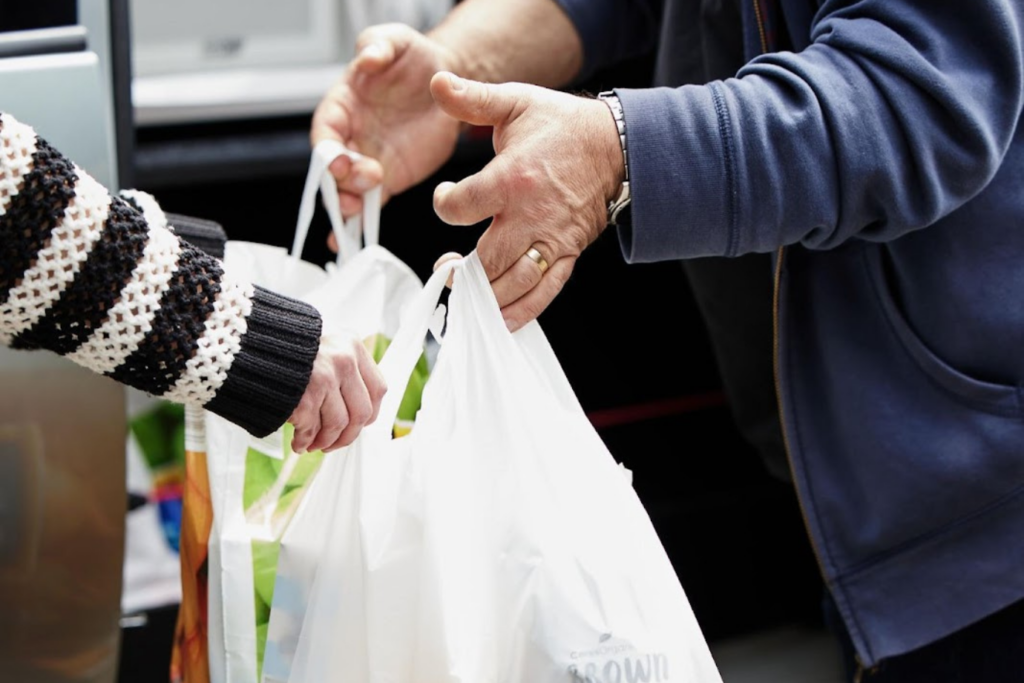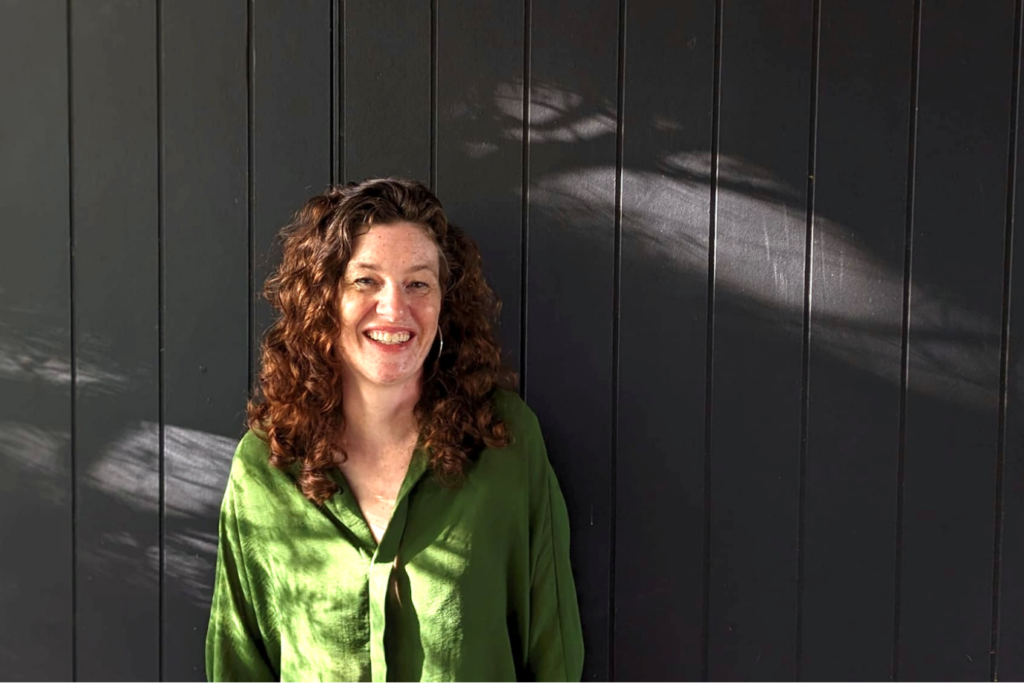If there’s one message Nickie Gyomber hopes survivors of trauma remember, it’s this: “If you reach out, people will catch you.”
And it’s that message that sits at the heart of the non-profit she heads.
The CEO of St Kilda Gatehouse leads a dedicated team of people who spend their day-to-day life working with some of the most marginalised people.
Nestled in the heart of inner southeast Melbourne, some of the team have spent years providing vulnerable people with a safe space for connection, while actively working to protect young girls at risk of sexual exploitation.
Gyomber says the non-profit began as a drop-in centre, offering women and non-binary people a safe place to go for rest and meaningful connections.
“It [works] to be a place of belonging and safety for people who are highly stigmatised and marginalised, and living with the consequences of significant life trauma,” she says.
“They’re often dealing with homelessness, they’re vulnerable to domestic violence, life-controlling addiction and the vast majority of the people we work with are street-based sex workers.
“And that’s really important because a lot of them find it difficult to access other services because they become stigmatised.”
Many of the people who get connected with St Kilda Gatehouse’s drop-in centre end up visiting thousands of times a year.
“It’s absolutely transformative and therefore the ripple effects across the community are amazing,” Gyomber says.

Over the years, the non-profit realised the need for early intervention which sparked the launch of the Young Women’s Program.
“The stories that we heard from drop-in was of young people who became sexually exploited and then that led to a trajectory of greater disadvantage,” she says.
It’s a common misconception that children are safe from sexual exploitation in Australia but Gyomber says it happens everywhere, cutting across all socioeconomic groups.
“The Australian Federal Police said that there was a 45 per cent increase in reporting of child sexual exploitation,” she says.
“Now that’s possibly partly because of increased awareness of what child sexual exploitation is, but it does possibly also reveal an increase in incidents.”
The internet has given predators more tools to abuse and exploit children with the AFP saying it receives close to 100 reports of sextortion targeting kids every month.
Abuse in childhood can have devastating lifelong consequences.
St Kilda Gatehouse sees this firsthand.
“Sexual exploitation is when somebody is coerced into engaging in any sexual act [that] involves a transaction,” she says.
“Sometimes those transactions are financial, sometimes it’s about the giving and receiving of affection, sometimes there can be housing involved in that. So people who are living in situations of poverty are often more vulnerable.”
Through the Young Women’s Program, which has been running since 2015, the non-profit takes an evidence-based approach to building a safety net around young people at-risk, aged 12 to 25.
“We work to build up people’s protective factors,” she says.
Research shows that young people become more vulnerable based on a range of hardship factors.
“The most significant aspect is if somebody has got a trusted adult in their lives and so a lot of the young people who we support, they don’t have a safe, trusted person in their life,” she says.
So the program connects vulnerable children with reliable healthy adults teaching them vital life skills.
“They can actually start to learn what is a healthy relationship with an adult,” says Gyomber.
“And in fact, that worker can become that first healthy relationship that can carry them through as they start to make different choices for themselves.
“Some of the other protective factors are an awareness of what sexual exploitation is, it’s an awareness of what grooming looks like, it’s being able to make goals for yourself, have future ambitions – but the most critical factor is having an adult who you can trust.”
What’s misunderstood about trauma
For adults living with the consequences of abuse, their trauma can often be invisible to others.
“I think the biggest misconception comes around the understanding of trauma,” she says.
“So often we can see somebody acting in a way out on the street that we might consider to be antisocial – and there can be a thought that that woman has chosen to be in this situation.
“But what we often find is actually that the behaviour is in fact a response to all sorts of experiences that they’ve had of being unsafe.
“An example of that might be somebody who appears to be quite reactive and actually, if you get to know a little bit of their story, they’ve got good reason to be reactive because they’ve had people who have been unreliable and violent and so on in their lives.”

Gyomber says people often also think drugs are to blame but this doesn’t provide a full picture of what’s happened over someone’s life.
“Nobody wakes up one day and says, ‘hey, I think I’ll become a drug addict. I think that’s what I want to do with my life’,” she says.
“It’s actually a response to a whole range of other things that are going on [and] those things are trauma-based. Often we’re looking at trauma that involves violence, particularly sexual violence and sexual abuse of children. That’s often the background story that leads to the trauma that then we might see as what we might consider to be antisocial behaviours.”
Breaking free from disadvantage
St Kilda Gatehouse also operates a social enterprise called Greeves Street, an op shop and creative space set up in an old church.
Not only does it help raise funds for the non-profit, it also creates opportunity for people wanting to break free from a life of disadvantage.
“It provides opportunities for women who have been marginalised and stigmatised to break through social isolation, connect with the broader community and develop other skills such as retail skills and so on that they may choose to use in other employment opportunities,” she says.
“We have school groups and corporate groups and so on coming in and doing some team-building activities here. I’d love to continue to develop that aspect of what we do because that’s how we build a more compassionate world.”
How you can make a difference
There are a number of ways to support the St Kilda Gatehouse whether it’s dropping in to the Greeves Street social enterprise, reaching out to organise a group activity with your workplace or donating remotely.
This year, the non-profit will also be a part of the Melbourne Fashion Festival for the first time.
The Fashion and Faux Tail event at St Kilda Townhall on Friday 28th of February will be emceed by comedian Jodie J Hill, and will feature vintage and upcycled pieces for all sorts of style lovers.
“This is a really fun and accessible way for people to connect with the story of Saint Kilda Gate House and make a difference.”


